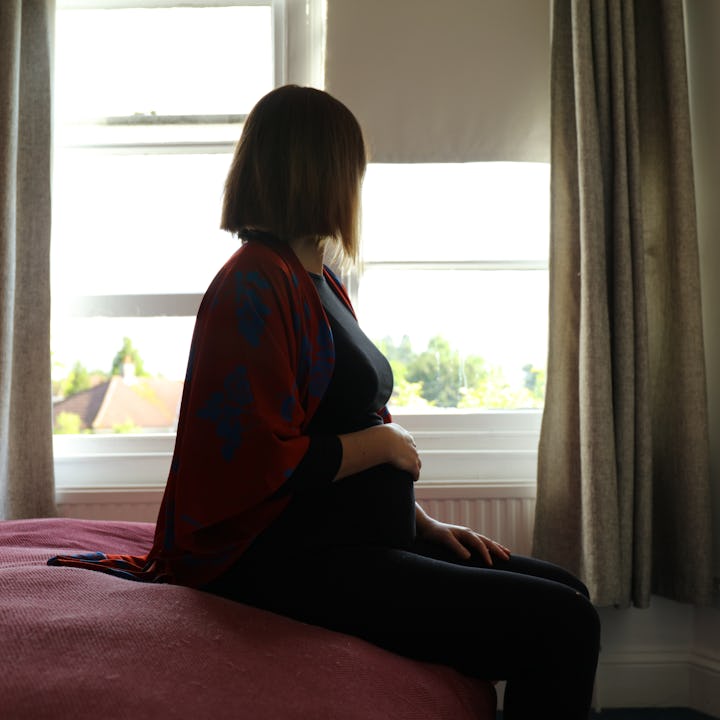Louisiana Woman Denied Abortion Despite Her Baby’s Fatal Condition
A pregnant woman in Louisiana says she is being forced to either carry her fetus with a rare, fatal condition or travel to another state for a legal abortion.

A pregnant woman in Louisiana says that she has been forced to choose between carry her fetus with a rare and fatal condition to term or traveling to another state for a legal abortion, since her home-state has one of the most restrictive abortion bans in the country.
Nancy Davis, who is 13 weeks pregnant with her second child, got her first ultrasound at Woman’s Hospital in Baton Rouge when she was 10 weeks pregnant. This was a pregnancy she and her boyfriend were excited for, but the ultrasound revealed that her baby suffered from a rare and fatal condition.
“It was an abnormal ultrasound, and they noticed the top of the baby’s head was missing and the skull was missing, the top of the skull was missing,” Davis explained to local news outlet WAFB9.
Her baby was diagnosed with acrania, a fatal congenital disorder where the baby’s skull fails to form in the womb. The bones are either completely or partially absent, and 75% of infants with any form of anencephaly, or the absence of major parts of the brain, skull, or scalp, are stillborn. Newborns who survive die within hours, days, or weeks at most.
Despite this devastating prognosis, Davis isn’t eligible for a legal abortion in her home state. Davis’ life is not in danger and her baby’s fatal condition does not fall under the Louisiana Department of Health’s list of qualifying conditions. Anencephaly is covered, but for whatever reason, acrania is not.
“It’s hard knowing that ... you know I’m carrying it to bury it...you know what I’m saying,” she explained.
Davis thinks lawmakers need to broaden the scope of the conditions that qualify for an abortion.
“I just want them to consider special circumstances as it relates to abortion...medical problems, like this is one that needs to be in that,” said Davis.
And, with all the back-and-forth surrounding the legalese of Louisiana’s abortion laws, this puts Davis in a position to make a difficult decision, and fast. Since the removal of Roe v. Wade, Louisiana’s trigger law that enforces a strict abortion ban has been challenged and taken effect three times. The law subjects health care providers and others who perform abortion up to 15 years in prison.
How about everyone gets safe and legal access to abortion? Let’s fight for that. See where abortion is on your state ballot for the 2022 general elections and vote accordingly.